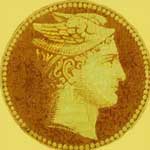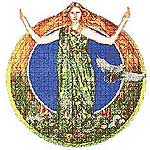Mercurius is a modern repertorization and materia medica software for homeopathic practitioners, providing you the highest quality information on which you can base your prescriptions.
Why exactly Mercurius stands out of the crowd:
- Very affordable pricing.
- Combines repertory, materia medica and the patient management system in a single piece of homeopathic software.
- Is the first homeopathic software in the world to release the latest Complete Repertory 2013.
- Features 100 000+ pages of spellchecked, corrected and unified Materia Medicae, including works of Vermeulen and Scholten.
- Provides compensated repertory model for all supported repertories.
- Features outstanding searching capabilities for both repertory and materia medica.
- Designed by people who have been working for years as computer professionals, yet also practice homeopathy – it has the best of both worlds.
- Built on modern technologies, combines ease of use and superior performance.
Supported repertories
Here is the list of currently supported repertories:
- Complete Repertory 2012 by Roger van Zandvoort – CR 2012
- Complete Repertory 2010 Deutsch by Roger van Zandvoort – CR 2010 DE
- Complete Repertory Classics 2009 by Roger van Zandvoort – CR CLASS
- Kent’s Final Repertory with additions and corrections – Kent ++ (exclusively in Mercurius)
- Boger-Boenninghausen’s Repertory with corrections (Boenninghausen’s Characteristics and Repertory)
- Boenninghausen’s Repertory with corrections (Boenninghausen’s Therapeutic Pocketbook)
- Boger’s Synoptic key
- Boger’s General Analysis and Card Index Repertory
- Repertory of the Elements by Jan Scholten (available as a part of Scholten pack)
All Mercurius repertories list the rubrics in alphabetical order, regardless of original ordering of that particular repertory, thus making them much easier to use, without the need to learn an arbitrary structure of that particular author.
Supported Materia Medicae
Some quick facts about the included Materia Medicae:
- contains more than 100 volumes of Materia Medicae
- more than 100 000 pages of spellchecked and corrected text
- almost 1300 remedies
- fast searching engine
The volumes are divided into four MM Packs (Materia Medicae Packs). Materia Medica pack with higher number contains all the volumes of previous MM Pack i.e. MM Pack 3 also contains all books from MM Pack 2.
Additional MM packs include books by
- The American Homoeopathic Review magazines
- Frans Vermeulen (Vermeulen pack)
- Jan Scholten (Scholten pack)
WHY IT IS THE MOST ADVANCED PROGRAME AND WHY ONE GET BEST RESULTS?
Many homeopathic programs feature hundreds of homeopathic texts, that occupy vast amount of space and that should contain vital information. The word “should” is correctly placed in the previous sentence.
Mercurius features more than 100 volumes of Materia Medicae, but the informational value contained in these 100 volumes of Materia Medicae by far surpasses the informational value of hundreds of assorted homeopathic texts. How is this possible ?
First, we include Materia Medicae only, that is where the main value lies, not other homeopathic texts. We also assign the text belonging to each remedy to UNIQUE remedy table, so it is very easy to find the information relevant to every remedy.
Next, Mercurius is the only homeopathic software that features corrected and edited Materia Medicae. During the process of integrating the Materia Medicae into the Mercurius, we became aware, that although the information contained in Materia Medicae is an excellent source of material, it contains a lot of errors.
The reason for this is simple. Most of the Materia Medicae were written almost 100 years ago. None of the authors used such simple tools as are available today (computers, word processors, automatic spellchecking etc.). Although these tools are already available to us, Materia Medicae were never subjected to the basic correction and editing process. Until now.
We have undertaken a huge task of correcting all the material contained in Materia Medicae, to make sure, that all the errors are corrected and that the Materia Medicae are presented in the best way possible.
Example
Here is a simple example that shows the major improvement of all Materia Medicae texts.
For this example we have performed a search in the text of the Materia Medicae by: J. H. Clarke, J.T. Kent and W.Boericke before and after the corrections.
| Word | Original text | Corrected text | Increase |
| Odorless | 7 | 46 | 657% |
| Dimsightedness | 1 | 6 | 600% |
| Shortsight | 3 | 15 | 500% |
| Torticollis | 4 | 10 | 250% |
| Waterbrash | 53 | 90 | 170% |
| Parturition | 39 | 58 | 149% |
| Menses | 584 | 737 | 126% |
| Albumin | 195 | 245 | 126% |
| Trachea | 232 | 248 | 107% |
| Ozena | 0 | 91 | XXXXX |
- As you can see, the number of relevant hits has increased in the corrected text significantly.
- Every Materia Medica was spellchecked to assure that all the mistakes were eliminated. Every Materia Medica has contained a lot of typos, incorrect word forms and archaisms that are no longer used. We have corrected these errors and the language of all Materia Medicae was hugely improved.Example: Constantine Hering uses in some cases word unpainful to indicate that the symptom was painless. We have changed the word unpainful to painless.
Now every time that the user searches the word painless, the results will contain even the symptoms that would not be displayed before this correction.Some of the authors used word Aezena instead of the word Oezena. We have corrected it and all the occurences of the words Aezena and Oezena were replaced with the word Ozena.
Some authors used different words to describe the meaning Menses. Commonly used words were: Menstruation and Catamenia. We have united all of these words into one word “menses”.
- Some of authors use British English and some of authors use US English. All the terms from British English were changed to the words from US English to ensure the unification of the language of Materia Medicae.Example: British English uses word “colour” and the US English uses for the same meaning word “color”. In original texts, the user would have to search for the word “color” and for the word “colour” to get complete results. This would be of course very difficult and would take too much time. We have changed all British English word forms into US English words forms and the search for word “color” returns complete results.
- More than 6 000 words (in more than 75 000 places) were updated in all Materia Medicae, from their incorrect forms into modern language. Authors of the older Materia Medicae used a lot of archaic terms, including the medical terms. Since these terms are no longer used, we have updated all archaisms and old medical terms.Example:
Nearly all the authors used the words like haemorrhage, haematoma, oedema etc. We have changed these words to hemorrhage, hematoma, edema, since the archaic type of these words are no longer used and modern repertories use modern medical terms. - The greatest problem in a search is the existence of synonyms. If the user searches the word, he should not be forced to keep in mind all possible synonyms and language forms.
Therefore, we have unified the words with the same meanings to assure that the user always finds the same thing. Synonyms were unified to assure that all the relevant symptoms are displayed during every search. If the synonyms would not be unified, the user could search for example for the word dullness and the search results would display 500 remedies containing this word. However, the user would not have found the other 650 remedies containing the worddulness (single “l”) and he/she would see less than a half of the real search results.Example:
Words dullness and dulness were unified into the word dullness.
Words gray and grey were unified into the word grey.
J. H. Clarke and C.Hering use abbrevations such as <, >, = to indicate the aggravation, amelioration and the causation of the symptoms. We have changed these shortcuts to their original meaning. - In the process of correcting Materia Medicae texts we have discovered a major problem in all Materia Medicae. Some remedies in Materia Medicae are currently known under different names than in the past. We have updated all remedy names to correspond with the remedy names used in the modern repertories.Example:
Remedy known as “KINO” is currently known under its correct botanical name as “Angophora Lanceolata”. We have updated the name of this remedy and of all the other remedies. - We have closely inspected all information in Materia Medicae, and we have discovered a critical problem.
Not many people are aware, that some remedies are in fact different than it is usually supposed. The problem is that from the times of Hahnemann, it was supposed that certain remedies produce the same symptoms and therefore they should be considered to be identical. Modern homeopathy however distinguishes these “identical” remedies, because they are now known to produce different symptoms.
We have undertaken a huge task in identifying these remedies and separating information into different remedies. This way we have corrected more than 107 Materia Medica records belonging to 35 remedy types. - Example:
In the Materia Medica by J.H. Clarke, the symptoms of Aconitine are merged with the symptoms of Morson’s English Aconitine. After a long study of old texts, we have realized, that Morson’s English Aconitine was prepared from the Aconitum Ferox. We have separated information belonging to Aconitum Ferox from Aconitine.Some authors merged Bufo Rana symptoms with Bufo Sahytiensis. It was impossible to separate the information of these two remedies and therefore the whole text of Bufo Rana from certain authors is listed under the Bufo Sahytiensis remedy, so that the user has a equal chance of finding both remedies.
- One of the problems in Materia Medica texts was the existence of so-called split words. Some older forms of words involving a combination of two words were written with a dash. The word “waterbrash” was written sometimes as “water brash” or as “water-brash”. We have developed an intelligent algorithm InteliMergeTM that identified such words, and if necessary, merged them, to provide the user with even greater chance of finding all relevant words. This way we have corrected more than 2000 words in more than 14 000 places.
- Materia Medica Browser is fully integrated in the Mercurius repertorization process. This means the user is able to create new symptoms based on the search results. If the user finds out, for example, that the repertory does not contain the disease “Mumps”, he can search through the Materia Medica Browser. The search through Materia Medicae returns 68 Mumps-specific remedies.
All the functions of Materia Medica Browser are interlinked with the operation of Mercurius. If the user double-clicks a remedy in the Mercurius, Materia Medica Browser instantly displays all relevant Materia Medicae for this remedy.
- · Keynote 1 – Corrections
- · Keynote 2 – Unification of language
- · Keynote 3 – Archaisms
- · Keynote 4 – Synonyms
- · Keynote 5 – Remedy names
- · Keynote 6 – Remedy substances
- · Keynote 7 – Split words
- · Keynote 8 – Integration
Materia Medicae packs
- MM Pack 1 (9 volumes, 7541 pages)
- MM Pack 2 (38 volumes, 47 814 pages)
- MM Pack 3 (65 volumes, 60 267 pages)
- MM Pack 4 (over 100 volumes, 84 095 pages)
For complete list of books please visit the page http://mercurius.sk/mmpacks.htm
Frans Vermeulen’s MM pack
Some quick facts about the included Materia Medicae:
- contains 4 volumes of Materia Medicae
- more than 10 000 pages of text
- more than 900 remedies
Contents of this Materia Medica Pack:
- Frans Vermeulen, Concordant Materia Medica (Millenium Edition, November 2000), 4694 Pages, 789 Remedies
- Frans Vermeulen, Prisma (Third Edition, June 2004), 2925 Pages, 194 Remedies
- Frans Vermeulen, Synoptic Materia Medica II (Third Edition, December 2003), 1793 Pages, 338 Remedies
- Frans Vermeulen, The New Synoptic One (First Edition, August 2004), 992 Pages, 198 Remedies
Jan Scholten’s pack
Some quick facts about the included Materia Medicae:
- contains 6 volumes of Materia Medicae
- contains 1 repertory
- more than 5 000 pages of text
- more than 680 remedies
Contents of this Materia Medica Pack:
- Jan Scholten, Homoeopathy and Minerals (9th Edition, May 2006), 1417 Pages, 310 Remedies
- Jan Scholten, Homeopathy and the Elements (4th Edition, May 2004), 1397 Pages, 172 Remedies
- Jan Scholten, Minerals in Plants (1st Edition, March 2001), 325 Pages, 122 Remedies
- Jan Scholten, Minerals in Plants 2 (1st Edition, August 2002), 790 Pages, 151 Remedies
- Jan Scholten, Wadstories 2 (1st Edition, August 2002), 209 Pages, 19 Remedies
- Jan Scholten, Secret Lanthanides, 1009 Pages, 98 Remedies
Repertory:
- Jan Scholten, Repertory of the Elements
The American Homoeopathic Review – MM pack
Some quick facts about the included Materia Medica Pack:
- contains all six volumes of The American Homoeopathic Review (all numbers)
- more than 4 000 pages of text
- over 400 selected articles with searchable descriptors.
Mercurius is currently available in English, German, Slovak and Czech.
Complete Repertory 2012 is available in English, German and French.
To date, Mercurius has users in 70 countries.




For Demo version i downloaded and tried to install but key no. does not come on my mail as written in instruction even after 3 days?
what is the price and how it can be bought.
The payment is for one time or require renewal fee ?